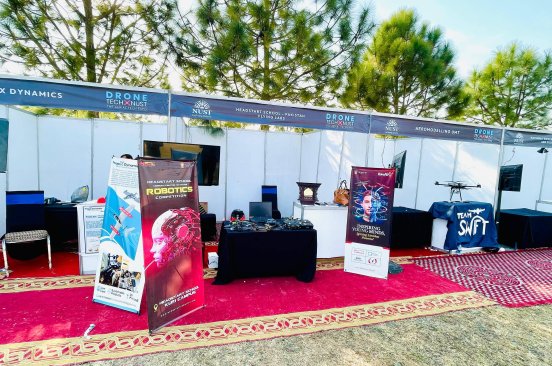
Elevating Education: Nigeria Flying Labs Empowers Secondary Students through Drone Training
The training offers a hands-on approach to learning for secondary school students, equipping them with technical, ethical, and critical thinking skills.
January 3rd, 2024
 The students of Iwase Grammar School, Ilado practicing drone flights on an open field
The students of Iwase Grammar School, Ilado practicing drone flights on an open field
In the realm of modern education, the integration of technology has become indispensable. Drone training stands out as a captivating avenue that not only ignites curiosity but also offers a hands-on approach to learning for secondary students. It sparks curiosity and also equips students with essential skills to tackle the challenges of tomorrow.
Our Approach
Our approach to drone training for secondary students is comprehensive and hands-on:
- Foundational knowledge: Students delve into the fundamentals of drones, understanding their components, functionalities, and the science behind their flight capabilities.
- Flight mastery: The hands-on experience takes center stage as students learn the art of piloting drones. They practice flight maneuvers and safety protocols.
- Real-world applications: The training extends beyond the classroom as students explore the applications of drones and engage in aerial photography.
- Regulatory understanding: A crucial aspect involves educating students about drone regulations, safety protocols, and ethical considerations associated with drone usage.
Objectives & Deliverables
Our program aims to achieve several key objectives:
- To develop technical proficiency in drone operation.
- To cultivate problem-solving and critical thinking skills through project-based learning.
- To foster creativity and innovation in utilizing drones for various applications.
- To instill a sense of ethical responsibility and adherence to regulations in drone usage.
The deliverables reflect the practical outcomes of the program:
- Proficiency in drone flight and maneuvering.
- Project portfolios showcasing applications in diverse fields.
- Understanding of regulatory and ethical considerations in drone usage.
- Enhanced problem-solving and critical thinking abilities.
The Impact of Training
The impact of this drone training program is far-reaching:
- Skill development: Students acquire technical skills and develop a mindset for innovation and problem-solving, essential for future careers.
- Practical application: They engage in real-world projects, applying theoretical knowledge to practical scenarios and bridging the gap between classroom learning and industry demands.
- Ethical understanding: Students gain a nuanced understanding of the ethical and legal implications of drone usage, promoting responsible and conscientious decision-making.
- Future opportunities: Equipped with these skills, students are prepared for diverse career paths in fields like engineering, agriculture, environmental studies, and more.
Next Steps
Upon completion of the training program, students are encouraged to pursue advanced certifications in drone technology or related fields. They can engage in internships or apprenticeships to further hone their skills in a practical setting. Additionally, they are urged to explore entrepreneurial avenues by leveraging their drone expertise for innovative ventures and participate in community projects or initiatives utilizing drones for social good.
Drone training for secondary students isn't just about flying drones; it's a gateway to a world of innovation, exploration, and responsible technological advancement. By empowering our students with these transformative skills, we're nurturing a generation of forward-thinkers ready to soar to new heights and make a tangible impact on the world around them.
Category(s)
Recent Articles
View All »

Team Cameroon's Road to Victory at the First Global Robotics Competition 2025
